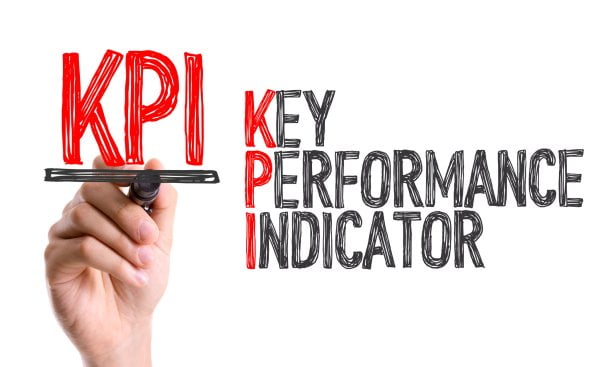In modern business, there is the constant challenge of setting strategic business objectives and measuring your organization’s progress toward these goals. Key Performance Indicators (KPIs) are a fantastic compass, helping guide you through the seas of data and providing a clear and objective view of performance.

This article discusses KPI reporting, exploring its key components and significance in organizational decision-making.
What is KPI Reporting?
KPI reporting collects, analyzes, and presents key performance indicators to assess a business’s performance or specific activities. KPI reporting involves the communication of these metrics through reports, dashboards, or other visualizations to help make informed decisions regarding performance management.
Key Components of KPI Reporting
Identification of Key Performance Indicators (KPIs)
The first step is defining and identifying the metrics, or indicators, most critical for measuring your business’ success. KPIs vary widely depending on the industry, internal department, or specific goals.

Data Collection
Collect relevant data from various sources, such as databases, CRM platforms, web analytics tools, financial statements, and other data sources. Make sure the data is accurate and reliable—this is critical for meaningful KPI reporting.
Data Analysis
Now that you have data in hand, you must analyze it to determine the value or progress of the selected KPIs. This analysis may involve comparing current performance against historical data, industry benchmarks, or predefined targets.
Benchmarking
KPI reporting often involves comparing performance against benchmarks, predefined targets, or industry standards. Benchmarking provides context for understanding how well your business performs relative to its goals or competitors.
Visualization of Results
Present the results in easy-to-see (and understand) visual formats like graphs, charts, reports, or dashboards. Visualization makes it easier for everyone to understand and interpret complex data sets.
Reporting Frequency
The frequency of KPI reporting depends on your business needs and the nature of the KPIs. It can be done regularly, such as daily, weekly, monthly, or quarterly; the frequency is typically related to the time sensitivity of the information.
Distribution and Communication
Once complete, distribute KPI reports to relevant stakeholders, including managers, executives, and other decision-makers within the company. The insights provided by the KPIs are only helpful if they are communicated to the right people to help make informed decisions and drive performance improvements.
Actionable Insights
KPI reporting not only presents data but also provides actionable insights. When done correctly, it will highlight areas of success, identify areas for improvement, and guide decision-makers in future actions.
The Importance of KPI Reporting
KPI reporting is vital for several reasons, and its significance spans numerous aspects of management and decision-making.
Performance Measurement
- KPIs are quantifiable metrics that help measure the performance of specific business objectives, processes, or activities.
- They provide a clear, objective way to gauge whether an organization meets its goals and targets.
Strategic Decision-Making
- KPI reporting offers an evidence-based approach to understanding what works well and what needs improvement.
- Decision-makers can more effectively allocate resources and prioritize initiatives based on the performance indicators most important to the organization’s success.
Goal Alignment
- KPIs help an organization align team and individual goals with the company’s overall objectives.
- By monitoring KPIs, employees can understand how their efforts contribute to the larger strategic goals, fostering a sense of purpose and direction.
Early Detection of Issues
- KPI reporting can identify potential issues or challenges in various business areas.
- Timely detection allows organizations to take corrective actions before problems escalate, helping to mitigate risks and maintain optimal performance.
Performance Improvement
- Regular monitoring and reporting of KPIs provide insights into areas that need improvement.
- Organizations can implement changes based on the data gathered to optimize performance, fostering a mindset of continuous improvement with employees.
Accountability and Transparency
- KPI reporting promotes accountability within the organization by establishing clear expectations and measuring performance against those expectations.
- Transparency in reporting helps build trust among stakeholders, including employees, investors, and customers.
Resource Optimization
- By understanding which activities or processes contribute most to the organization’s success, resources can be allocated more efficiently.
- Allocating resources optimally can improve overall operating efficiency and cost savings.
Benchmarking
- KPIs allow you to benchmark your business’ performance against industry standards or competitors.
- This comparative analysis provides valuable insights into areas where the organization excels or lags, allowing for informed strategic adjustments.
Continuous Monitoring
- KPI reporting involves regular monitoring of performance metrics and course corrections, keeping your organization agile and responsive to internal dynamics or changing market conditions.
Need Some Help from Ready Business Systems?
For more information about the services Ready Business Systems offers and how we can effectively help grow your business, call us at 1-800-485-1404 or visit our Contact page.
Whether you want to run your business more smoothly or need help with your GAME plan, we can help you find the right options!


